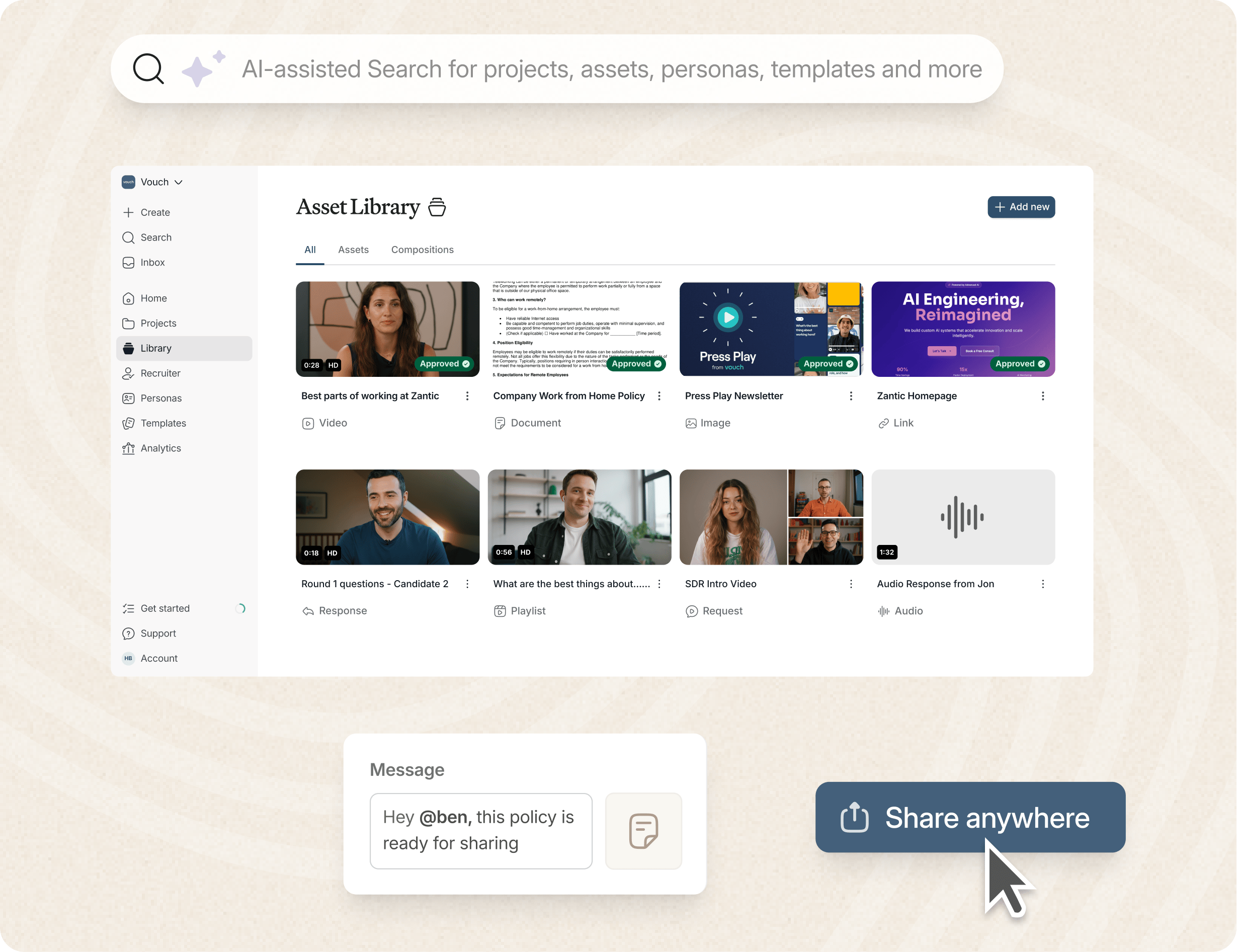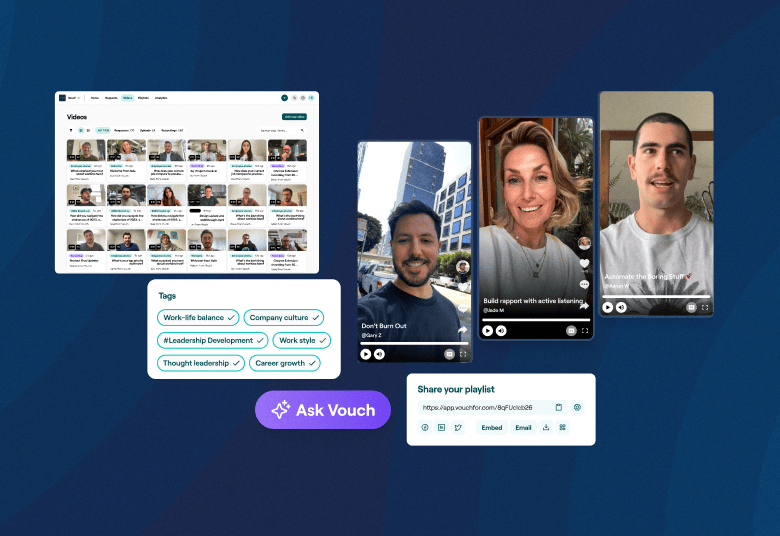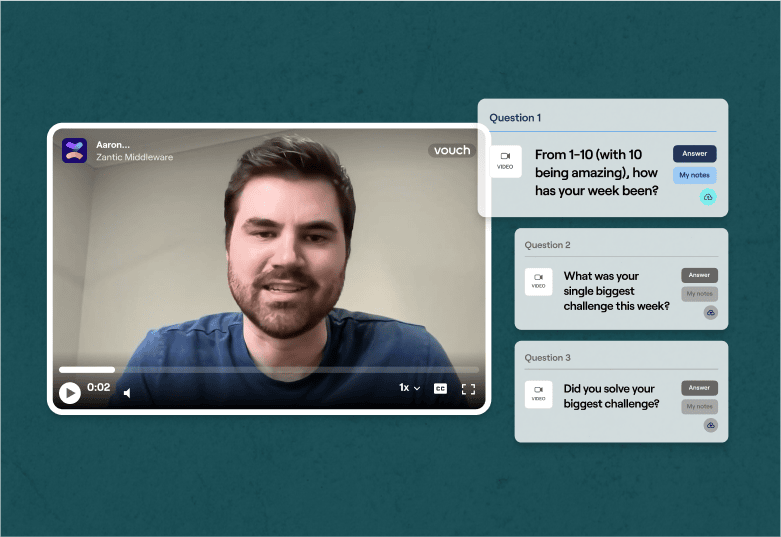If you're in a profession that requires continuous learning—like healthcare, education, or management—you've probably encountered the term "Self-Assessment Module" (SAM) at some point.
But what exactly is a Self-Assessment Module or self-assessment tool, and why is it so crucial in today's professional landscape?
And is microlearning the future of post-self-assessment education?
In this guide, we'll dive deep into what a SAM is, how it works, why it's important, and some real-world applications you can leverage.
Let's dive in.
What is a Self-Assessment Module?
A Self-Assessment Module (SAM) is an educational activity designed to help professionals evaluate their current knowledge and identify areas for additional training or education.
These modules typically involve a series of multiple-choice questions (MCQs) that test your understanding of specific topics relevant to your field.
SAMs are most commonly used in fields that require continuous professional development (CPD), such as healthcare, education, and heavy or higher risk-based industry jobs like mining and management.
SAMs are also a key component of many certification and recertification processes and are often required by regulatory agencies to ensure that professionals remain competent in their respective fields.
The AI-enabled workspace for talent teams.
- Unified workspace for talent teams
- Accelerate hiring with AI tools
- Auto-generate polished hiring and employer brand content
- Easily repurpose assets across all channel

How Does a Self-Assessment Module Work?
The self-assessment process is straightforward. After enrolling in an online self-assessment program, you're typically required to complete a pre-assessment. This pre-assessment serves as a baseline to gauge your current knowledge of the subject matter.
Once the pre-assessment is complete, you'll dive into the educational content, which may include video content, text, audio playback, quizzes and programs. After studying the material, you'll face a post-assessment—another set of multiple-choice questions aimed at measuring what you've learned.
Upon successful completion, which often requires a minimum score to pass, you'll earn credits—often referred to as 100 self-assessment credits or professional education units (PEUs). These credits are essential for meeting education requirements, fulfilling accreditation requirements, and achieving recertification.
Why Are Self-Assessment Modules Important?
SAMs are essential for a variety of reasons:
1. Credit Commensurate with Educational Activity
SAMs offer credits that reflect the amount of time and effort you've invested in your professional development. These credits are critical for fulfilling continuing education requirements and maintaining your certifications, just like an airline pilot needs to do.
2. Knowledge Gaps
SAMs help identify knowledge gaps in your current understanding. By completing these modules, you can target specific areas that need improvement, ensuring that you're always on top of your game. This is also where microlearning is invaluable for working professionals.
3. Outcomes for Clients
In healthcare, for example, SAMs directly impact patient outcomes by ensuring that medical professionals are up-to-date with the latest clinical practice guidelines and procedures. The same applies to lots of industries, from retail to airlines.
4. Recertification Requirements
Many certification boards, such as those for advanced practice nurses and physicians, require the completion of SAMs as part of their recertification process.
5. Regulatory Agencies
Regulatory bodies often mandate the completion of SAMs as part of their oversight to ensure that professionals in various fields remain competent.
The Latest 2026 Statistics on Self-Assessment Modules
Let's look at some real-world data to understand the impact of SAMs in 2026:
- 90% of participants in Interprofessional Continuing Education (IPCE) programs reported high satisfaction with SAMs as their preferred method of professional development: Accreditation Council for Continuing Medical Education (ACCME)
- 65% of managers who completed Self-Assessment Modules in leadership teams reported improved team decision-making and processes: American Management Association
- 80% of professionals who completed SAMs in Contemporary Management felt more prepared for regulatory changes and accreditation requirements: Contemporary Management Concepts
- Over 85% of medical professionals who completed Self-Assessment Modules (SAMs) reported significant improvements in their clinical practice: WISER Systems
- 70% of healthcare professionals stated that Self-Assessment Modules helped them identify critical knowledge gaps that they were previously unaware of: Medscape
Case Study: How SAMs Improved Clinical Practice in a Small Healthcare Facility
Let's take a look at a typical example: the healthcare industry, where keeping up to date on the latest policies, procedures, and client support matters.
Background: A small healthcare facility in rural America was struggling with patient outcomes. Despite having a team of dedicated professionals, the facility's performance metrics were below average, and patient satisfaction was declining.
Problem: The facility's leadership team suspected that knowledge gaps among the staff were contributing to the poor outcomes. Many staff members had been out of school for several years and hadn't kept up with the latest clinical practices.
Solution: The leadership decided to implement a comprehensive Self-Assessment and microlearning platform. Each staff member was required to complete an online self-assessment program focused on the latest clinical guidelines and procedures.
Implementation: The program included pre-assessments to gauge the staff's current knowledge, followed by educational content featuring video content, text, and audio playback. After completing the educational activity, staff members took a post-assessment to evaluate what they had learned.
Results: Within six months of implementing the SAMs and microlearning strategies, the facility saw a 30% improvement in patient outcomes. Staff members reported feeling more confident in their clinical practice, and patient satisfaction scores increased by 25%. The facility also met all accreditation requirements for the year, avoiding potential penalties from regulatory agencies.
What Are The Components of a Successful Self-Assessment Module?
To create an effective SAM, several key components must be in place:
1. Educational Content:
The content should be relevant, up-to-date, and designed to fill knowledge gaps. Content reviewers should ensure that the material is accurate and aligned with current standards.
2. Multiple-Choice Questions:
These questions should be challenging yet fair, covering a range of topics within the subject matter. Typically, a SAM includes 40-75 questions, with multiple answer options for each.
3. Activity Evaluation Form:
This form is crucial for gathering feedback from participants. It helps activity providers assess the effectiveness of the module and make necessary revisions.
4. Internet Activity:
SAMs are often delivered as internet-based CME activities, requiring a stable internet connection for participants to access the material and complete the assessments.
5. Completion Requirements:
To earn credits, participants must meet specific completion requirements, such as achieving a minimum passing score on the post-assessment.
What Are The Challenges of Self-Assessment Modules (SAMs)?
While SAMs offer many benefits, there are some challenges to consider:
- Cost: While some SAMs are free, others may require a minimal dollar investment, particularly those that offer professional education units or continuing medical education (CME) credits.
- Time Commitment: SAMs can be time-consuming, especially if they cover complex topics or require multiple assessments.
- Technology Requirements: Participants need a reliable internet connection and compatible devices to complete the modules. Session cookies may also be required to track progress.
What are 7 statistics on Self-Assessment with real website sources
Here are seven insights into self-assessment backed by recent studies and data:
- Growing Personal Development Market: The global personal development market, which includes self-assessment, is projected to reach $67 billion by 2030. This growth is driven by a rising focus on self-improvement, skill enhancement, and the use of digital platforms for self-guided assessments and development
Grand View Research
. - Mental Wellbeing Awareness: Self-assessment tools in mental health are widely used, with 87% of students reporting they need support for mental or emotional health. This highlights the value of self-assessment tools for identifying when professional help is needed
Healthy Minds Network
. - Prevalence of Self-Reflection in Education: In educational settings, self-assessment is an effective method for students, where over 70% found that it improved their learning outcomes and self-awareness, particularly in environments that encourage regular feedback
Grand View Research - Mental Health Insights: Data from the Mental State of the World Report shows that self-assessment tools, such as the Mental Health Quotient, are essential for tracking wellbeing, with 419,000 responses collected globally. The report provides a comparative view of mental wellbeing and highlights areas needing support
World Report 2022
. - Impact on Academic Performance: Self-assessment regarding mental health reveals that 22% of students felt their mental health challenges significantly affected their academic performance, demonstrating the importance of early self-assessment in identifying such issues
Healthy Minds Network
. - Self-Awareness as a Key Growth Segment: The self-awareness segment in the personal development industry is expected to grow at 6.9% annually through 2030, reflecting the increasing demand for tools that help individuals assess and enhance their personal skills
Scott County Head Start
. - Behavioral Tracking for Wellness: The Healthy Minds Study highlights that self-assessment is increasingly used to track behaviors like exercise and sleep, showing that 24% of respondents spend five or more hours a week exercising, which correlates with improved mental health outcomes
Healthy Minds Network
.
These statistics underscore the broad adoption and importance of self-assessment tools in mental health, personal development, and education, providing insights that benefit both individuals and institutions.
FAQs
What is a Self-Assessment Module (SAM)?
A SAM is an educational tool that helps professionals assess their current knowledge and identify areas for improvement.
Who needs to complete SAMs?
SAMs are often required for professionals in healthcare, education, management, and other fields that require continuous professional development.
How many credits can I earn from a SAM?
You can typically earn 100 self-assessment credits or more, depending on the complexity and length of the module.
Are SAMs available online?
Yes, most SAMs are internet-based CME activities that can be completed online.
Do I need a minimum passing score to complete a SAM?
Yes, successful completion usually requires achieving a specific passing score on the post-assessment.
How are SAMs evaluated?
SAMs are often evaluated through an activity evaluation form, which collects feedback from participants.
Are there any costs associated with SAMs?
Some SAMs are free, while others may require a minimal dollar fee, especially those offering professional education units.
Conclusion
Self-assessment modules are vital tools for professionals looking to stay current in their fields, fulfill recertification requirements, and improve their practical skills.
Whether you're in healthcare, education, or management, SAMs offer a structured and effective way to assess your knowledge, fill gaps, and ensure you're always at the top of your game.
In 2026, SAMs will be more accessible and effective than ever, thanks to internet-based CME activities, high-quality educational content, and robust assessment tools. With the right approach, SAMs can be a game-changer in your professional development journey.
Like to try Vouch for Microlearning?
Loved by companies like Canva, Nike, Cisco, HubSpot, Amazon, and more, tools like Vouch make leveraging video in your business communication and recruitment remarkably easy.
Be sure to book a Vouch demo today and chat with a video content expert.
You might also like

Elevate Your Brand Today With Vouch
Discover how Vouch can accelerate talent acquisition while helping you stay on-brand.






